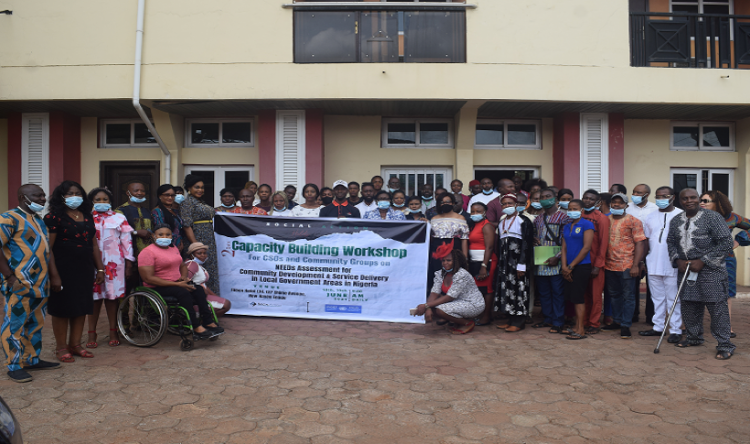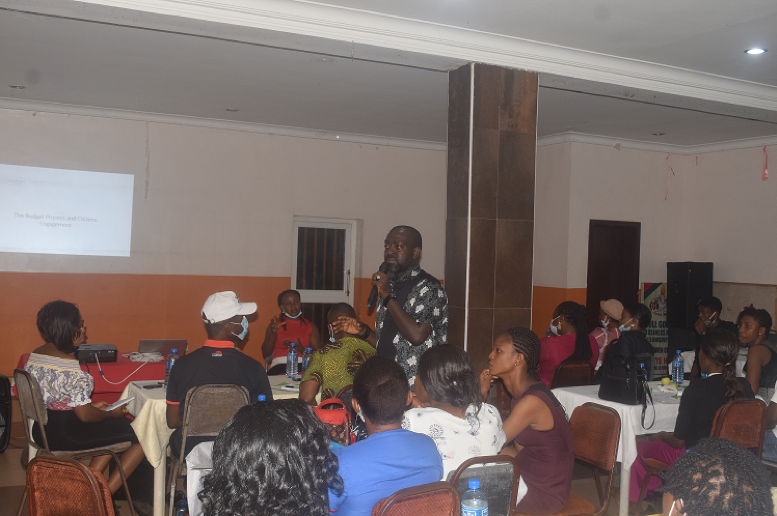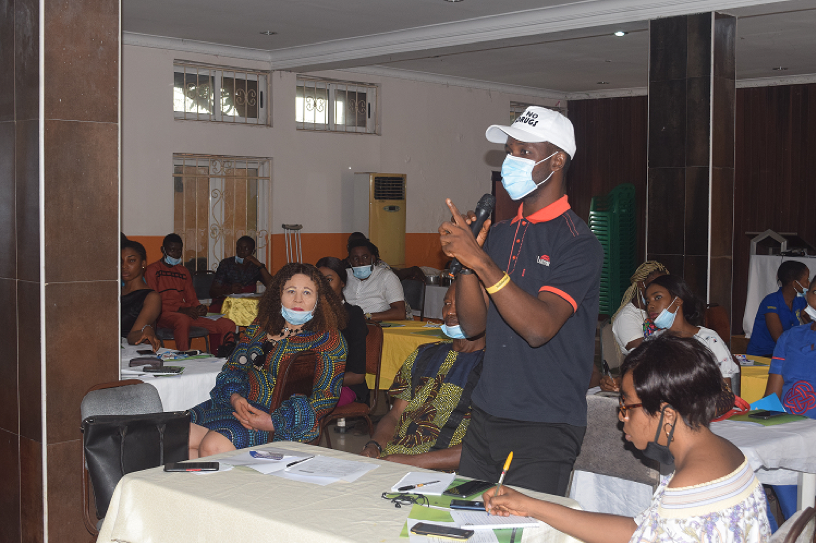
Nigeria is a federal system made up of a three-tier government. While the federal and state governments have been active and prominent, exerting their rights and roles in governance as specified by the constitution, the local governments, on the other hand, have been kept in the cool, ostensibly, by the operations of the other two tiers. The need to bring government to the people has always been the idea behind the creation of the local government.
To this end, Social Action, with the support of UNDEF, organized a workshop in continuation of its advocacy campaign to strengthen individuals, groups and CSOs to engage Local Government officials on good and inclusive governance. The workshops with the theme “Capacity Building for CSOs and Community Groups on the Need for Community Development and Service Delivery”, were organised in Enugu
Resource persons including Sampson Jaja, Kentebe Ebiaridor and Franklin Olaniju took participants through different topics on local government autonomy, openness and inclusivity in government, NEEDs assessment and citizens participation in the budget system
Prince Edegbuo, Senior Programs Officer at Social Action addressing participants during the workshop
Local Government Autonomy
The Senior Programs Officer of Social Action, Prince Edegbuo welcomed participants and pointed to the fact that the local government is facing serious constrictions and lacks the freedom to pilot its affairs hence one of the purposes of the workshop is to galvanize support for the independence of the local government and put an end to the anomalies suffered by the people. According to him, the separation of local government from state government is necessary for any change to take place. Inclusion and citizens participation in the local government affairs is the way forward as citizens cannot continue to keep quiet and leave the government to carry on with the business of governance the way they want. Participants all agreed on the need for an autonomous and independent local government to achieve laudable development, abate redundancy in the LGAs and make it easier for checks and balances.
Inclusivity
The workshops also provided a platform for CSOs, NGOs, Community Chiefs, women groups and People Living with Disabilities (PLWD) to deliberate on the topic and create a strategic work plan to hold Local government accountable to its people. Stakeholders deliberated on the role of gender mainstreaming and social inclusion in achieving accountable local government areas. They argued that social inclusion and exclusion of gender especially the female gender has been one of the societal challenges. The drivers of such exclusions were identified such as ethnicity, indignity, gender relations, religion, physical disability, place of residence, HIV/AIDs and age.
A cross section of participants at the workshop
Citizens participation in the budget system
Programs Coordinator, Social Action, Botti Isaac further charged participants on the need for participatory budgeting. In his remarks, Botti argued that citizens must be aware before any project is allocated to the community. Having noted that the budget process is flawed, he posited a bottom-top approach. The citizens must first identify their needs before a project is awarded and such project must be tailored to meet their needs. He assured participants of Social Actions assistance to active citizens and organisations who want to be involved in ensuring proper monitoring and tracking of Local government financial administration and spending.
At the end of the workshops, participants expressed their willingness to engage the local government and ensure their needs are met. During the group workshop coordinated by Bukola Adedeji, work plans and agenda were set. Attendees discussed ways to mainstream gender and ensure there is social inclusion of all groups in their organization.


